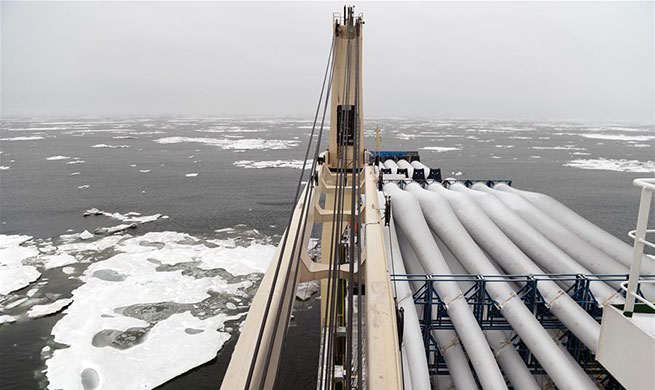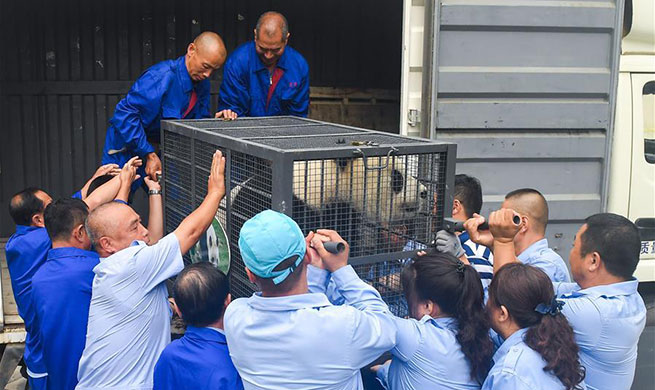NICOSIA, Aug. 20 (Xinhua) -- As Muslim Turkish Cypriots prepare to celebrate Eid al-Adha, also called the "Festival of Sacrifice", the continuing Turkish lira crisis makes it difficult for them to celebrate properly.
Religious tradition of Eid al-Adha, one of the two biggest Islamic festivals, calls for the sacrifice of a lamb by each family and giving some of the meat to their less fortunate neighbors.
With the Turkish lira standing at just over six lira to one U.S. dollar, compared to about five before the onset of the crisis, many say they will not be able to buy a lamb for the most sacred Muslim feast, which starts on Tuesday night and lasts until Saturday.
"Celebrating Eid properly is important. But more serious is our everyday living," said Hasan Mahmoud as he was leaving a supermarket in the Turkish part of the capital Nicosia.
Turkish Cypriots gave up the Cypriot pound and started using the Turkish lira as their currency in 1974, when the Turkish army occupied the northern part of Cyprus in reaction to a military coup by the Greek rulers. This led to the creation of a breakaway Turkish Cypriot state in 1983, recognized only by Turkey.
The slide of the lira over the last few weeks has made them poorer. What's more, there has been a 12-percent increase over the last year in the price of basic food commodities such as bread, milk, eggs, sugar, salt, butter and cheese.
Meanwhile, Greek Cypriots have been taking advantage of the depreciating lira to make cheap purchases in Turkish Cypriot shops.
"Turkish Cypriots have become poorer by half. They buy less and less," Tenzel Nisam, a supermarket executive told a Turkish Cypriot newspaper.
"Before the crisis, I earned the equivalent of 1,000 U.S. dollars, now it is 500 U.S. dollars," complained businessman Ziya Alpturk.
Buying household items such as a TV set would be even more expensive, as prices of imports are expected to go up by as much as 65 percent.
Sacide Bayuk, a sales representative of imported Japanese TV sets said that people are spending less on non-essentials.
Suppliers have started withholding deliveries to shops because of the uncertainty over how much prices will go up. Vendors in the north have limited sales of cigarettes to three packets per person and some of them have pulled imported tobacco off their shelves.
Suppliers of building materials such as bricks, cement, timber and paint suspended sales, leading construction companies to stall.
Even more serious is people's inability to repay loans borrowed in foreign currency. Sometimes the money needed for servicing a loan is more than what its owner earns.
Authorities in the north have also announced a set of measures, such as lowering value added tax (VAT) on basics, fixing foreign exchange rates for rents, introducing multiple electricity tariffs to help the most vulnerable, and incentives to local producers.
Even though lira rates have eased somewhat, Turkish Cypriots pray for a respite in the worsening relations between the United States and Turkey, a major source of the problem.













